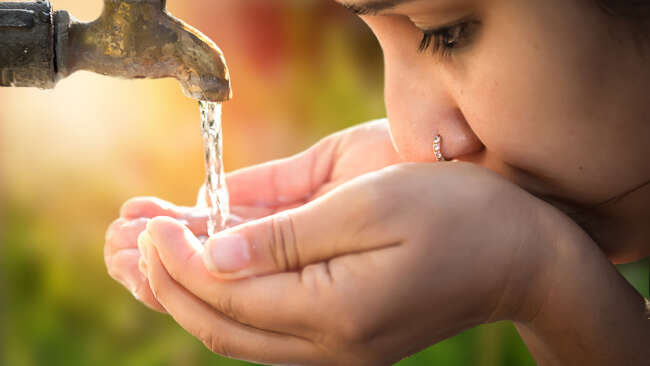Since the 1990s researchers have argued that trace amounts of lithium in drinking water may help lower the suicide rate and decrease violence in local populations. According to the World Health Organization (WHO) suicide is responsible for around 800,000 deaths globally, every year. سباق الخيل As the world continues to battle political unrest, climate change, and, a pandemic it seems things won’t be getting better any time soon.
However, it seems the researchers at Brighton and Sussex Medical School and King’s College London may have managed to find a way to reduce this toll and alleviate the pain of those suffering.
Researchers in the UK have now conducted a meta-analysis of these studies to find evidence of whether there is an association between lithium levels in water and suicide rates in a population. They published their findings in the British Journal of Psychiatry. Out of a total of 415 articles, 15 were used for the analysis and included data from 1286 localities from around the world.
In these unprecedented times of the COVID-19 pandemic and the consequent increase in the incidence of mental health conditions, accessing ways to improve community mental health and reduce the incidence of anxiety, depression, and suicide is ever more important.
Lead author, Professor Anjum Memon
Lithium – the magic ‘ion’
Lithium is a naturally occurring element that can be found in trace amounts in various rocks and, weathering can cause it to enter our water supply. Its widely used as a potent mood stabilizer especially in individuals with bipolar disorders for its ability to reduce aggression, stabilize mood, and lower the risk of suicide in individuals with mood disorders. However, individuals taking lithium have to be continuously monitored for lithium toxicity. The dose at which lithium toxicity can occur tends to vary among individuals.
The result of the analysis confirmed the link between lower suicide rates and higher levels of lithium in drinking water. However, the team argues that ecological studies, such as the ones included in the analysis, can only generate hypotheses and not answers.
Therefore, the next step would be to test the hypothesis by conducting community trials where trace amounts of lithium are added to water supplies of particular communities and their effects are then studied. The trials could focus on communities with a higher level of mental health problems. However, the ethical implications of such a trial have to be kept in mind.
It is important to remember that lithium levels in drinking water are much lower than the medicinal doses used in psychiatry. Additionally, when we study the effects of lithium in communities it is imperative that all other sources of lithium, other than drinking water, and factors that contribute to a person’s mental health are also taken into account. Therefore, further research is needed to fully understand the extent of lithium’s effect on a community’s mental health and whether these results are solely due to lithium or other contributing factors. روليت عربي
Reference:
Memon, A., Rogers, I., Fitzsimmons, S., Carter, B., Strawbridge, R., Hidalgo-Mazzei, D., & Young, A. (2020). Association between naturally occurring lithium in drinking water and suicide rates: Systematic review and meta-analysis of ecological studies. The British Journal of Psychiatry, 1-12. doi:10.1192/bjp.2020.128




